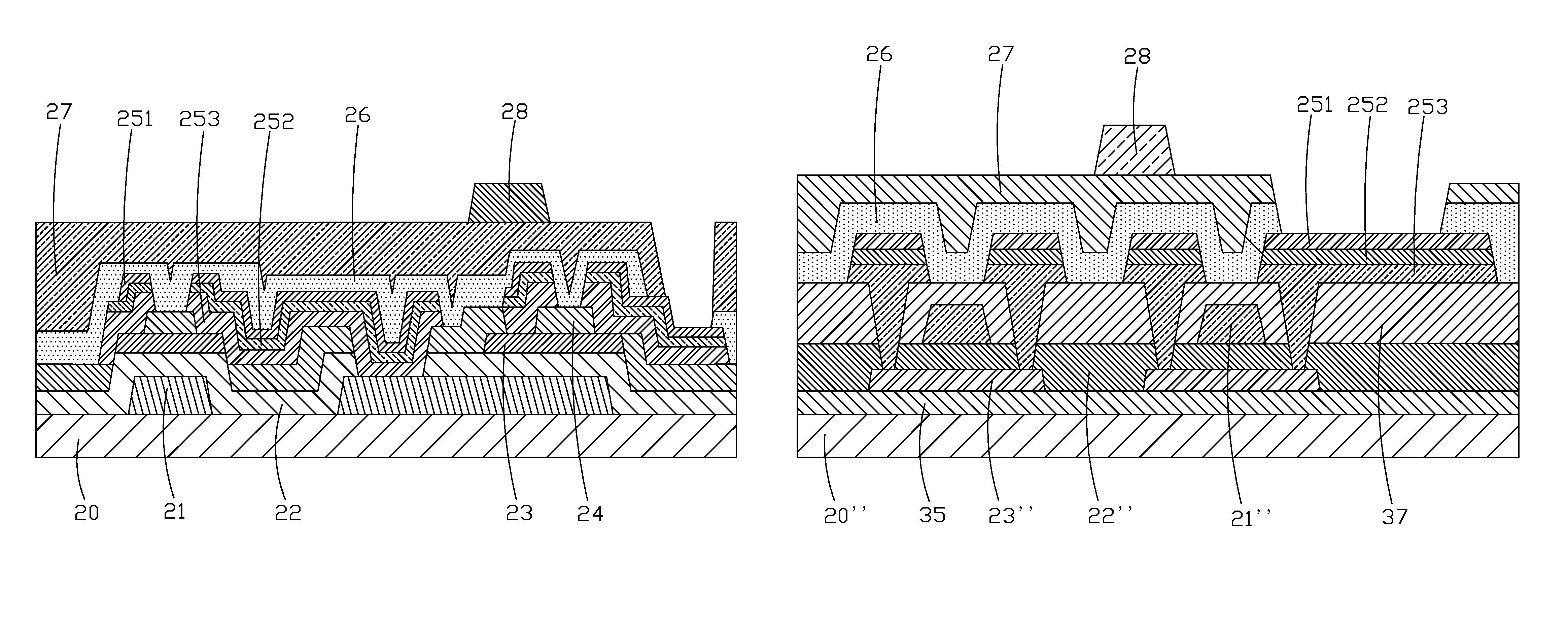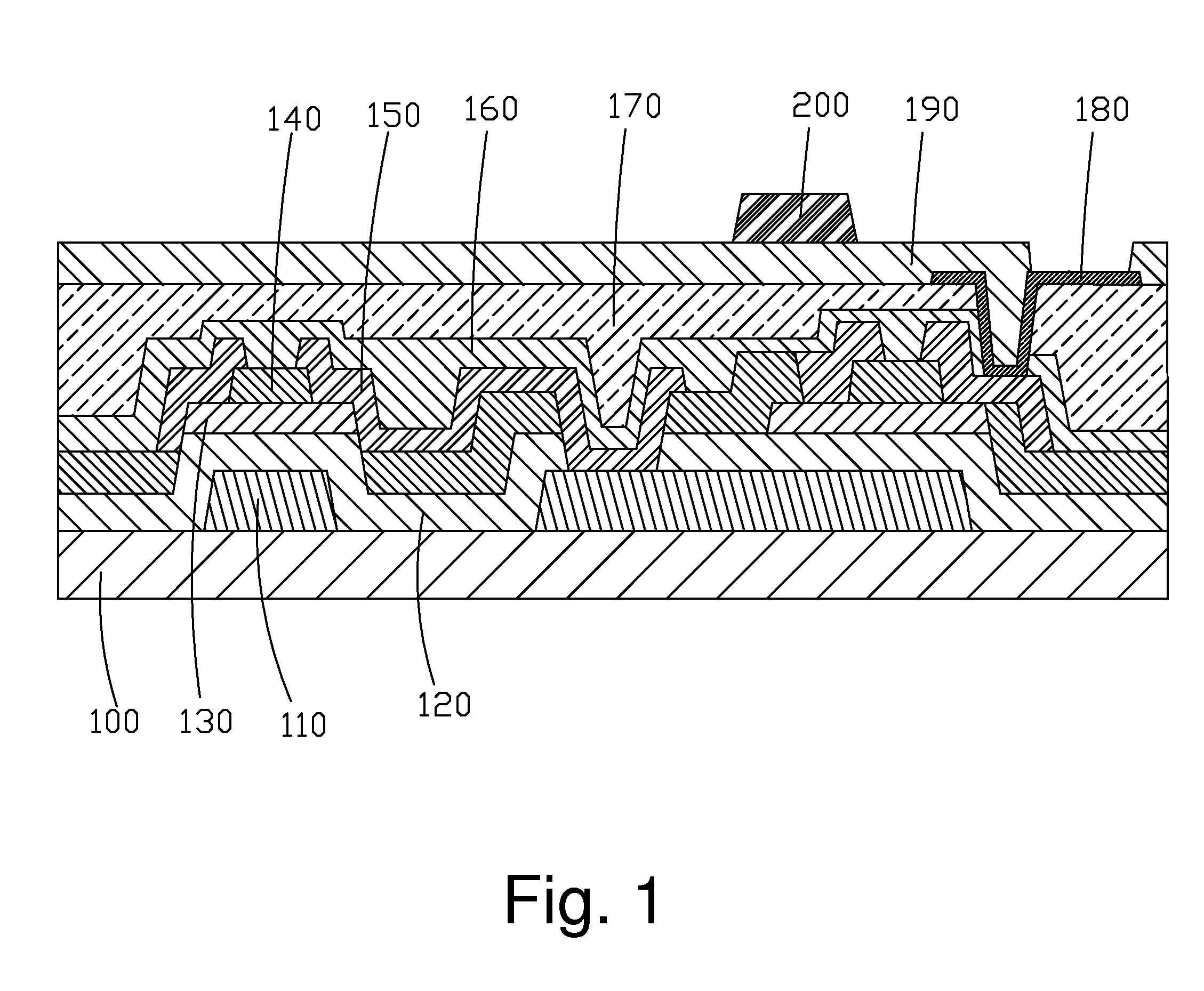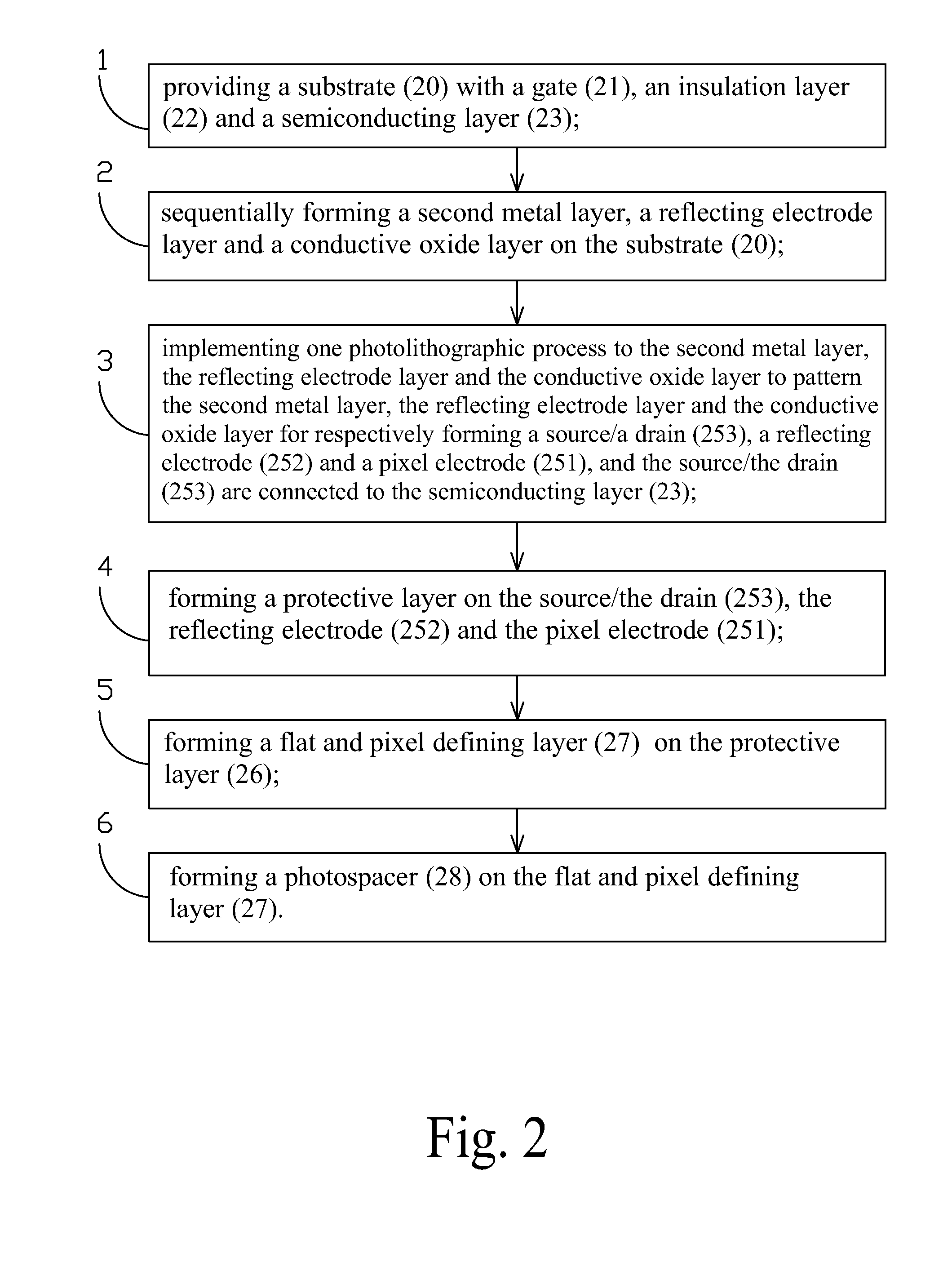Manufacturing method and structure of thin film transistor backplane
a manufacturing method and backplane technology, applied in the field of flat panel display, can solve the problems of more considerable accumulated yield problem, longer process time, and reduced yield of production, so as to reduce the cost of production. , the effect of reducing the cost of production
- Summary
- Abstract
- Description
- Claims
- Application Information
AI Technical Summary
Benefits of technology
Problems solved by technology
Method used
Image
Examples
first embodiment
[0047]The step 1 can be achieved by present skills. In step 1 of the first embodiment, the substrate 20 is a transparent substrate. Preferably, the substrate 20 is a glass substrate. On the substrate 20, the gate 21 on the substrate 20, the insulation layer 22 on the gate 21, the semiconducting layer 23 on the insulation layer 22 and an etching stopper layer 24 on the semiconducting layer 23 are formed. The gate 21, the insulation layer 22, the semiconducting layer 23 and the etching stopper layer 24 are sequentially formed on the substrate 20 with respective photolithographic process.
[0048]The semiconducting layer 23 can be an oxide semiconducting layer, such as an indium gallium zinc oxide semiconducting layer (IGZO), or an amorphous silicon (a-Si) semiconducting layer, a polysilicon (p-Si) semiconducting layer or an organic semiconducting layer.
[0049]step 2, sequentially forming a second metal layer, a reflecting electrode layer and a conductive oxide layer on the substrate 20;
[0...
second embodiment
[0060]In step 1 of the second embodiment, the substrate 20′ is a transparent substrate. Preferably, the substrate 20′ is a glass substrate. On the substrate 20′, the gate 21′ on the substrate 20′, the insulation layer 22′ on the gate 21′ and the semiconducting layer 23′ on the insulation layer 22′ are formed. The gate 21′, the insulation layer 22′ and the semiconducting layer 23′ are sequentially formed on the substrate 20′ with respective photolithographic process.
[0061]The semiconducting layer 23′ can be an oxide semiconducting layer, such as an indium gallium zinc oxide semiconducting layer (IGZO), or an amorphous silicon (a-Si) semiconducting layer, a polysilicon (p-Si) semiconducting layer or an organic semiconducting layer.
[0062]Other steps are the same as those described in the first embodiment. The repeated explanation is omitted here.
[0063]Please refer to FIG. 10 and FIG. 11, which are diagrams of the third embodiment of the manufacture method of the thin film transistor ba...
third embodiment
[0065]In step 1 of the third embodiment, the substrate 20″ is a transparent substrate. Preferably, the substrate 20″ is a glass substrate. On the substrate 20″, a buffer layer 35 on the substrate 20″, a semiconducting layer 23″ on the buffer layer 35, an insulation layer 22″ on the semiconducting layer 23″, a gate 21″ on the insulation layer 22″ and a second insulation layer 37 on the gate 21″ are formed. The buffer layer 35, the semiconducting layer 23″, the insulation layer 22″, the gate 21″ and the second insulation layer 37 are sequentially formed on the substrate 20″.
[0066]The semiconducting layer 23″ can be an oxide semiconducting layer, such as an indium gallium zinc oxide semiconducting layer (IGZO), or an amorphous silicon (a-Si) semiconducting layer, a polysilicon (p-Si) semiconducting layer or an organic semiconducting layer.
[0067]Other steps are the same as those described in the first embodiment. The repeated explanation is omitted here.
[0068]The present invention furth...
PUM
| Property | Measurement | Unit |
|---|---|---|
| semiconducting | aaaaa | aaaaa |
| conductive | aaaaa | aaaaa |
| transparent | aaaaa | aaaaa |
Abstract
Description
Claims
Application Information
 Login to View More
Login to View More - R&D
- Intellectual Property
- Life Sciences
- Materials
- Tech Scout
- Unparalleled Data Quality
- Higher Quality Content
- 60% Fewer Hallucinations
Browse by: Latest US Patents, China's latest patents, Technical Efficacy Thesaurus, Application Domain, Technology Topic, Popular Technical Reports.
© 2025 PatSnap. All rights reserved.Legal|Privacy policy|Modern Slavery Act Transparency Statement|Sitemap|About US| Contact US: help@patsnap.com



